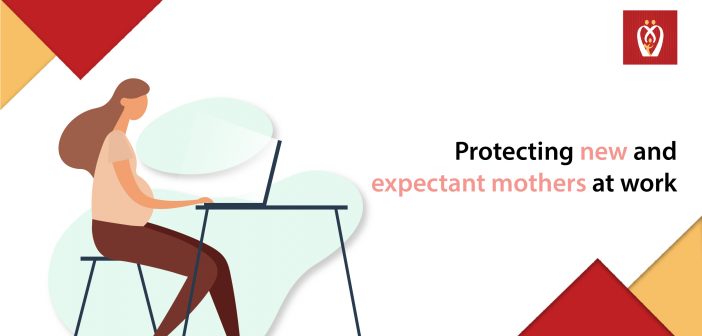By default, appreciating work is not something that is woven into human nature. Now imagine working with back pain, frequent trips to the loo, sudden nausea and of course a heavy something tied to your tummy! Well, that is what working as an expectant mother is like and while we support equality at the workspace, it has always been a conversation about equality of pay, opportunities and innovation, and not physical equality, a biological fact that cannot be disputed. . Working at the office during a pregnancy puts enough hiccups in a woman’s life.
While we could speak about equity and equality, we’ll leave it to esteemed academicians in the field to talk about the nuance of gender roles and office work. We would rather shed light on what we know best here at Nurturey: Ensuring a happy pregnancy for women and a healthy early life for their baby. Keeping up with the spirit, we thought of listing a few risk assessments, and pregnancy rights that one is awarded at their workplace.
While we are sure that your employer will take absolute care of all of these guidelines, here are some for a quick review for yourself too.

The very basic: NO Discrimination
A lot of organisations are known to avoid hiring pregnant/expectant mothers or in case they do hire, expectant mothers have faced a lot of discrimination workwise. This discrimination comes in multiple forms, some of which include delayed promotion, a very restricted maternity leave, reduced salaries, and in some cases, request for resignation or forceful employment termination too. It goes without saying that none of this is acceptable and hence should be brought to the attention of the relevant authorities
The Need for risk assessment
The Management of Health and Safety at Work Regulations 1999 requires the employers to protect the health and safety of the expectant mothers who are on their payroll. This involves proofing of the entire premises to see if there is something that could potentially harm the expectant mothers or their fetus. The danger may not come in the form of chemicals being used all the time.
A lot of times, minor fitments in the work areas, sealing off of certain probable hazardous areas can also be required. As a matter of fact, as per the Sex Discrimination Act 1975, failure on the behalf of the organisation to do so, especially when they are employing pregnant women or women of child bearing age can be considered as sex discrimination.
The need to inform
You really do not have any obligation to tell your employer about when you are planning to have a child. Family planning is a given and it is a very private decision which has no relation to your professional life. The entire concept of maternity leave and even paternity leave now was created with that in mind- that you can go about your personal life unhindered and a balance is struck between the personal and professional.
However, once you become pregnant or have started breastfeeding, it is advisable to give a written notice to your employer informing them about the same. This is because unless a written notification is obtained, the employer is not obliged to take any actions for the risk assessment or mitigation thereof. In some cases, a certificate from your GP or midwife may also be required laying out the specific precautions that the employer may have to take for you.
Having cleared the air on the frequently asked questions, here is a list of common risks that may present themselves to you at work. Be cautious there.
The Frequent Rest Breaks
The most uncomfortable of the topics but rest breaks are something that you will have to take frequently and somehow you’ll have no control over them either. While you don’t have to talk it out specifically, yet you can casually tell your supervisor/employer about the same if these frequent rest breaks are making you any less productive. We are sure that the other person will understand. In a lot of cases, the doctor/midwife mentions the same in their letter/certificate as well to avoid any awkward situation for the patient later.
The Probable Risks for Expectant mothers at work
While there may not be any direct dangers, risks exist from multiple sources that are physical, biological or chemical in nature. The employer, as mentioned above, is thus required to do a risk assessment. Your help shall also be required for the same, and hence it is always advisable to consult your doctor or midwife for the same. Having said that, some of the common risks that exist in the workplace are:
- lifting/carrying heavy loads
- Exposure to lead
- Passive smoking
- High decibel levels
- Exposure to radioactive substances
- Exposure to infectious diseases
- Work-related stress
- Long working hours
- Uncomfortable workstation ergonomics
Conclusion
In this blog, we tried to bring out some of the major risks that one as an expectant mother may face at their workplace. It is not about snooping in on your employer. Knowing what you require is also important to ensure that you and your employer together are able to create a safe working environment. We hope this helped. In case you have any questions, please feel free to write to us.
At Nurturey– we are always happy to help you have a seamless pregnancy!







